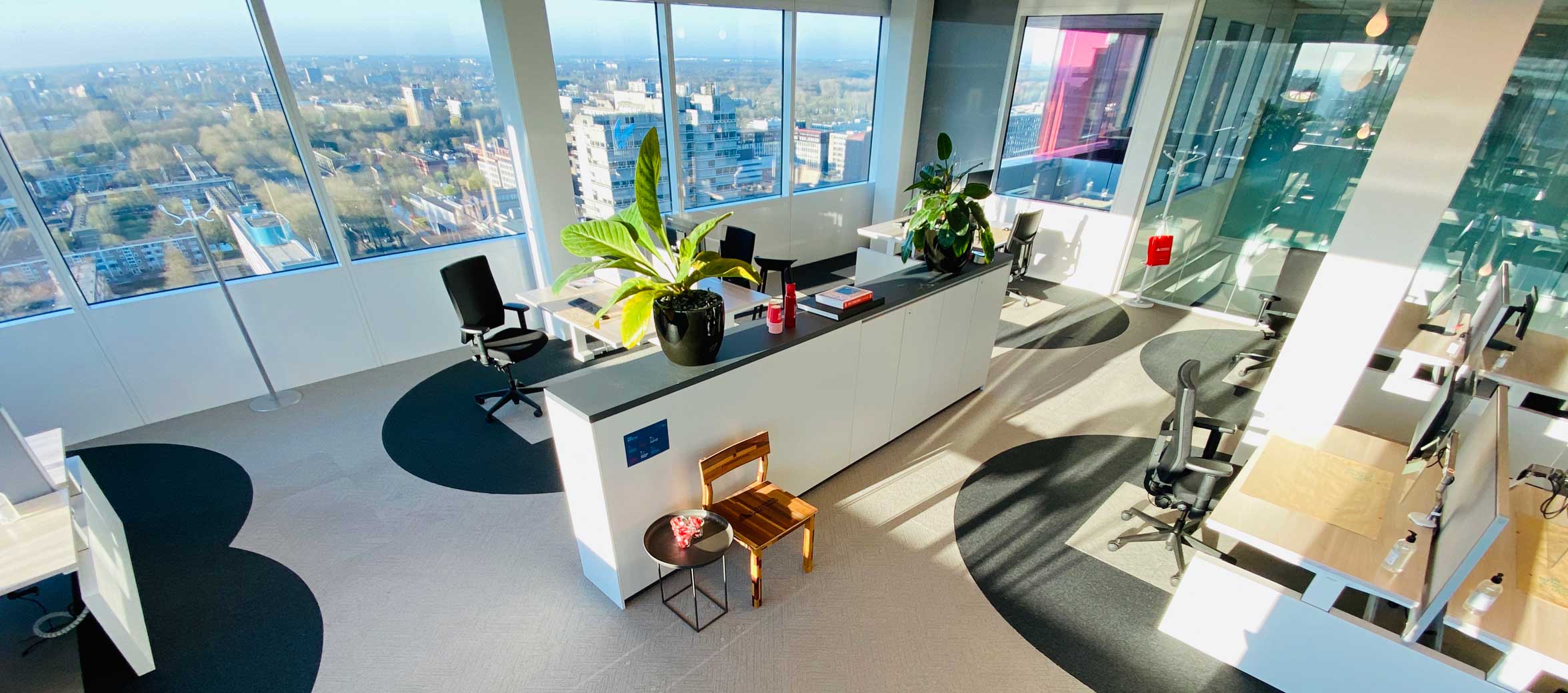
I’ve been thinking about this subject a lot lately. What will the future of work look like? This is especially relevant for those of us who are responsible for transitioning the workforce back to the office while adopting a new set of rules and a new sense of normal.
Realistically, things won’t go back to our pre-COVID life for a very long time, meaning business owners must focus on how we keep our employees safe while building a culture of support and inclusion.
One thing that has been on my mind lately is what cultural norms will go away in the workplace. We’re going to be more vigilant and think twice about how we interact with each other in the workplace. We’re used to sitting close to our coworkers and expressing ourselves with high fives, pats on the back, even hugs.
That, inevitably, will have to go in the interim as people become more cautious and aware of physical distancing. We’re also looking at the removal of the communal food sharing bowl, even the traditional handshake that we’re so accustomed to. We know that for the first little while, not all of our coworkers will be in the office at the same time.
We have proven that we can work remotely, but as Sprout’s increased engagement numbers over the months of isolation show, we rely on our social interaction with coworkers to keep us healthy.
Undoubtedly, offices are going to change significantly, including our Sprout HQ in Toronto. Here’s how we’re going to approach a new work life.
- Cleaning services will be enhanced, desks won’t be as close to each other, we likely won’t use meeting rooms for a while instead relying on virtual, and large company gatherings will decrease and be limited to very important meetings depending on the size of company.
- Employee mental and physical health will continue to be a big focus for companies. We need a more holistic approach to wellbeing. While physical health is important, we also need to focus on the mental and emotional wellbeing of employees. I think that companies are realizing how important it is to keep employees engaged and motivated regardless of where they are working.
- We’re going to be more empathetic towards work-life balance. In quarantine, people have been operating without childcare while cooking and cleaning while trying to meet deadlines and attend Zoom meetings. Managers and colleagues have a new understanding and appreciation for family demands and how much we all juggle in a day. I think we all have a new appreciation for how important family time is.
- As people become more comfortable with technology and rely on it to connect, we’re going to see an increase in demand for digital workplace solutions.
- Colleagues will be closer than ever. We have been through a really hard time together and I think coming out of it we will all have a new level of appreciation for each other. We won’t be taking things for granted like going for lunch, taking a spin class together, or enjoying after work drinks in the office.
What do you think the future of work will look like?
Martha Switzer, Cofounder and CSO of Sprout.
